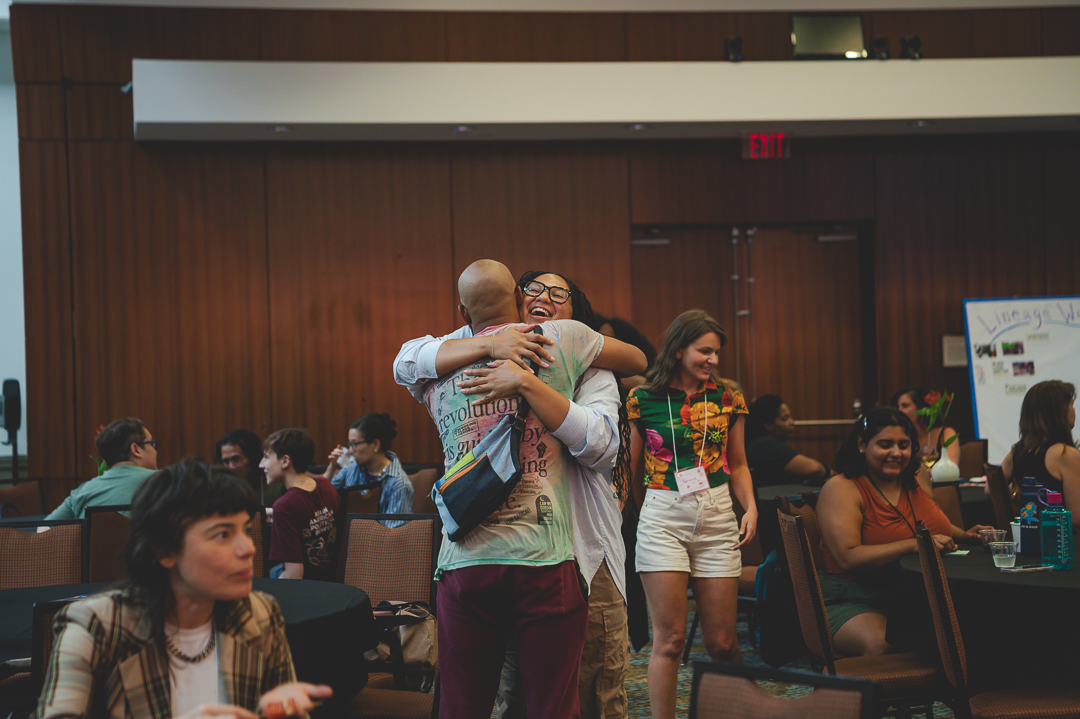
At ReFrame, we envision a world where marginalized communities have the power to shape meaning and material conditions toward justice. To get there, we first need to understand that the terrain on which we’re operating is stacked against us. We are organizing and telling stories on an uneven playing field, where the underlying narratives have long been shaped by a vast and resourced network of highly conservative forces. While narratives are never static and are always up for contention, conservative narratives of racism, sexism and homophobia have been built into the functioning of society and continue to undergird many systems and institutions today.
This is the playing field on which disinformation and misinformation is spreading. Disinfo and misinfo spread because the content invokes narratives that feel like common sense to certain audiences, including anti-Blackness, anti-Semitism, misogyny, and red-baiting. While the details of the disinfo might be new, the underlying narratives that make the disinfo believable have been advancing for decades. These new disinformation streams give emotional urgency to these narratives, often by exploiting fear, and thrive in voids of clear, factual and equally emotional information.
So how do we combat disinformation and misinformation? The same way we work to even the playing field and shape meaning and conditions toward justice for the long term. By moving strategically to control the debate, and by building social power for the long term.
Another way to talk about social power is narrative power. At ReFrame, we define

narrative as a collection of related stories that are articulated and refined over time to represent a central idea or belief.1 We must build the power we need to have our narratives matter– narratives that advance racial, economic, gender, and climate justice. The more our narratives build influence and traction, the more we even the playing field toward justice, and the more we change conditions to even this playing field, the more our narratives can matter. As we respond to disinformation and misinformation, it’s our job to start seeding counter narratives that innoculate against disinformation by creating a a new common sense where racist, sexist and homophobic values have no place, and therefore little cognitive traction through which to spread.
We’ve known for years that our opponents lie and manipulate people to maintain and consolidate power. They’ve used advertisements in news media, made deceitful phone calls to voters, and posted anonymous and misdirecting flyers in shops. What’s different is that the digital realm, a realm in which we make meaning and sense of the world and connect with people, has created the opportunity for a wider range of bad actors to spread disinfo, and has allowed for more varied and targeted ways for it to be spread. That is exactly what’s happening today, and it is contributing to a sense of chaos that can feed into mounting fascism, unless we launch an increasingly coordinated movement response.
Tracking, combatting, and neutralizing disinformation isn’t separate from our narrative power-building approaches as organizers and advocates. Instead, we see it as something we should integrate into the work we’re already doing — print and social media scanning, 1:1 conversations on the doors and on the phones, the ways we communicate with our bases and our members, and how we organize and work with journalists and digital platforms. That said, we also need to combine forces with others who are doing larger platform accountability campaigns, journalist education and organizing, and building networks of trusted messengers, disruptors and meaning makers across all sectors of society (see our Movement Framework for Disinformation Response).
It’s going to take more than a pithy tweet that goes viral to neutralize disinformation and seed the narratives that we want to be common sense, although it might help from time to time. We don’t have to choose to strategically respond to disinformation or spend our time building narrative power – to try to prioritize one or the other. In these times and in the fights we are in for our lives and the lives of people we love and care about, we can and need to do both.
Let’s build power, fight lies and fascism, and win the world we long for.
Stay tuned for our Disinfo Defense Toolkit, co-curated with PEN America coming soon!
1: This definition was developed by Narrative Initiative in conversation with 100 strategists, as outlined in their paper Towards a New Gravity
2: The concept of the internet as the “digital realm” comes to us from Kairos, from their Medium post, Building Power Online







































.jpeg)


.png)

%20(1).png)




























